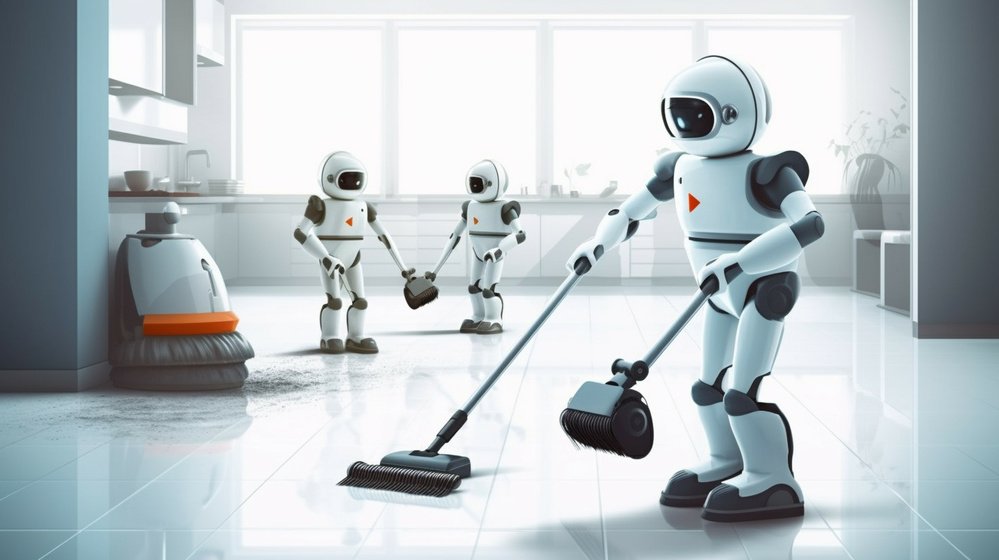It is fun to think about what the future might hold in terms of robots and AI. Films, television, and science fiction novels all point to a future of self-aware robots capable of doing everything humans can do. Is such a scenario a reasonable assumption for the cleaning industry? Probably not.
It is true that we already have certain types of robotic cleaning machines. You might even have one in your home, in the form of a robotic vacuum. We also know of robots that perform all sorts of warehouse and manufacturing functions. But all these robots have one thing in common, something that could prevent us from ever developing a fully self-aware robot capable of cleaning an office environment.
Cleaners Perform All Sorts of Tasks
To understand the fatal flaw in robotics, start by thinking about your typical office cleaner. Whether someone cleans a medical building, a private school, or an entire inventory of vacation homes run by a property management company, that person performs all sorts of tasks.
A professional cleaner sweeps and vacuums. A professional disinfects toilets, countertops, and even doorknobs and handles. One human being could clean an entire building from top to bottom. Are robots capable of the same thing? Not even close. Will they ever be? Probably not.
An Unfathomable Number of Decisions
The human brain needs to make an unfathomable number of decisions on any given day. Those decisions are coupled with intrinsic muscle movements, memory, and a variety of additional bodily functions just to perform basic tasks. Even the best machines in the world cannot accurately duplicate what the human body and mind can do together.
A robotic floor sweeper does the job because it has only one task. If you were to add the task of wiping down countertops, you would have to completely redesign the robot. It would have to be much bigger. It would require more advanced programming.
Every additional task adds to a robot’s design and programming requirements. Simply put, there is a reason why manufacturing robots are usually built to do a single task. Designing and programming them to perform multiple tasks – especially dissimilar tasks – is both impractical and very complicated.
Cleaning Is Actually Complex
The plain truth about business and industrial cleaning is that it is actually quite complex. We might come up with a particular task list to clean the previously mentioned vacation homes. The property management company we work with wants things done a certain way. We are happy to provide that service.
But another All Pro Cleaning Systems client might run a small manufacturing plant. The plant’s cleaning needs are going to be entirely different. So will the equipment we deploy and the cleaning chemicals we choose. But guess what? The same crew that spent Monday cleaning the vacation homes could turn around and clean the manufacturing plant on Tuesday.
Another thing to remember is that every cleaning scenario is different. Even with something like vacation homes, different properties could have very different cleaning needs. Renters can leave different kinds of messes in their wake. A professional cleaning team needs to be capable of adapting to virtually any environment.
It’s Fun to Dream
It’s fun to dream about a future in which humans and self-aware robots coexist. Maybe robots will be capable of doing pretty complex things in the future. But we cannot imagine a day when they will replace human cleaners. Office and business cleaning is too complicated. You would need a whole army of robots to do what one human can do. And that just doesn’t make sense.


